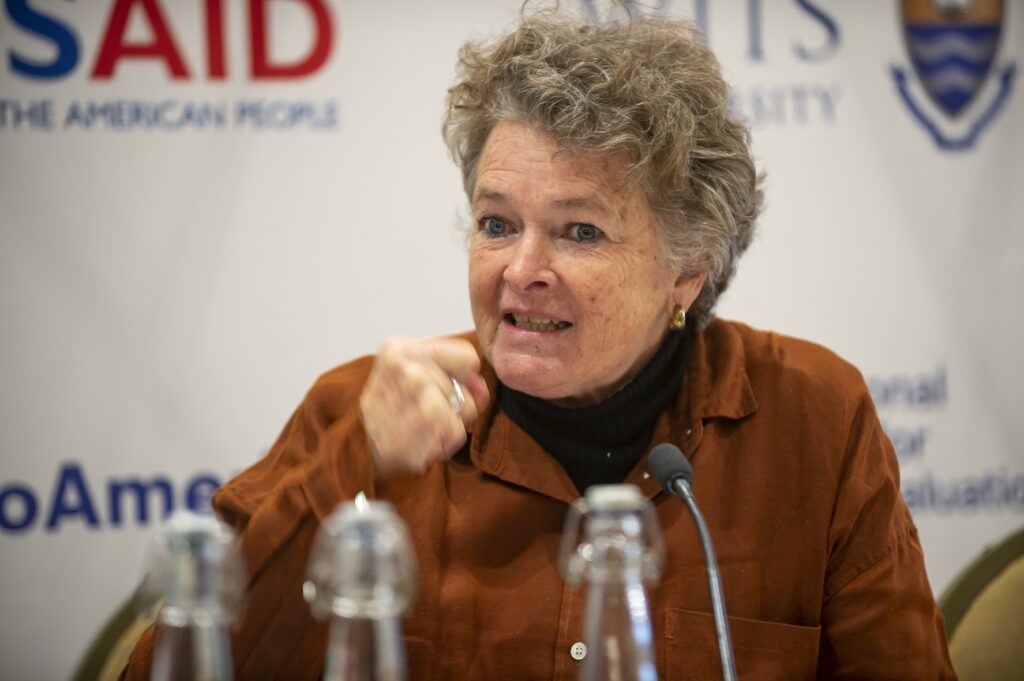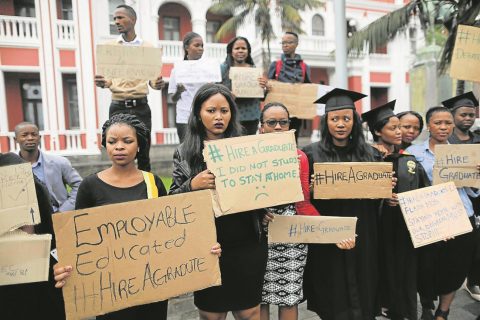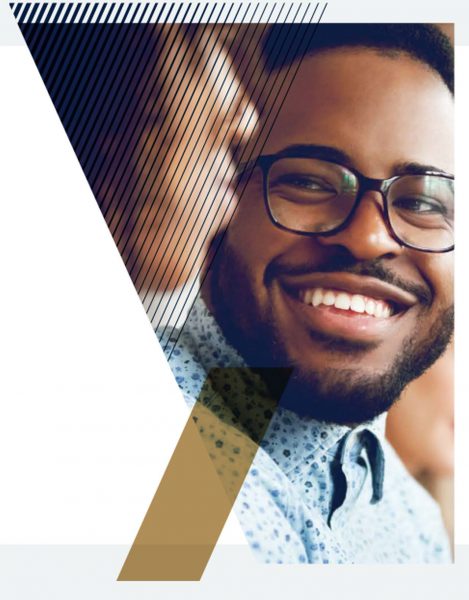The South African Schools Collection PR
DBE Reveals Evidence To Improve Early Grade Reading: The Early Grade Reading Research Indaba Unpacks 10 Years Of Research
As President Cyril Ramaphosa has stated, early grade reading is possibly the single most important factor in overcoming poverty, unemployment, and inequality. Science shows that children who acquire critical thinking skills at foundational age achieve better results in secondary and tertiary education and become better leaders.
The Indaba’s primary focus was the DBE’s Early Grade Reading Study (EGRS) series. Starting in 2014, a series of randomised control trials (RCTs) based on teaching interventions were conducted to answer the research question: How best to implement early grade reading support solutions in South African schools sustainably?
The EGRS programme has generated a wealth of evidence by way of answer, finding that an on-site coaching model was the most effective intervention, creating an environment of active listening, individualised reading opportunities for learners and building the teaching ability and capacity of teachers. The EGRS was implemented in North-West in Home Language and in Mpumalanga in English as a First Additional Language.
Strategically transforming education through evidence-based interventions
In Session One, Andy Karas, USAID Mission Director for the Southern Africa Regional, Office highlighted the impact already achieved by the EGRS programme:
“The EGRS programme has now implemented support programmes in 450 schools to evaluate the impact of these models and inform a wider scale implementation by national and provincial educational departments.”
Sustaining and amplifying these interventions, however, will take developmental and technical support from a broad coalition of partners with a common goal, including private sector donors:
“The objective is to ensure that educational objectives are outlined at an actionable, operational level to achieve the National Development and 2030 Goals.”
Muriel Mafico, Deputy Country Representative, UNICEF South Africa, amplified this statement:
“Remedial education programs need to be implemented at scale, anchored in evidence-based approaches. The ‘secret sauce’ is partnership and collaboration, the sense of urgency we need to inject in our work.”
The DBE’s Dr Stephen Taylor summed up the EGRS-generated evidence clearly shows that:
“The core reading challenge comes down to improving classroom teaching in home language at the foundation level. It’s where the greatest loss occurred when COVID-19 disrupted classroom teaching. The evidence is that in person, on-site coaching is more effective than virtual coaching. We need to coordinate and sustain support around a coherent curriculum intervention plan. Strengthening home language instruction in the early grades may be more strategic than targeting English.”
Wits University’s Prof Brahm Fleisch highlighted the transformative potential of the EGRS programme: “Literacy and numeracy, particularly in the early grades, are key improving the entire educational system from the bottom up. This demands some form of external assessment and accountability, as well as fairly simple, structured curricula that provide teachers with very clear guidance.”
Sustainability and the principles of success
In Session Two, Dr Dave Evans, Senior Fellow at the Centre for Global Development, drew from case studies in Brazil, Kenya and Zambia to illustrate three principles for success in educational development: “All elements of the education system must be oriented towards achieving literacy; teachers and students must be provided with all the tools they need; and they must have an environment in which to succeed.”
In discussion with the ZENEX Foundation’s Dr Fatima Adam, Dr Dave Evans called for sustainable leadership:
“Educational transformation doesn’t happen at scale in a sustained way without political leadership. Specific targets within education must be public, well known and championed with consistent messaging by the head of government.”
“The challenge is to develop sustainable leadership that commits to processes involving multiple stakeholders beyond a single electoral cycle,” added Prof Brahm Fleisch.
“The achievement of literacy and numeracy has to be a national priority which motivates everyone with the moral sense of its necessity and the sense that it can be done because we have proven solutions,” said Ms Mary Metcalfe (National Commissioner for Education).
Benchmarking African languages
In Session Three, the DBE’s Nompumelelo Mohohlwane shared about additional work and research that has followed these studies, This includes the use of the EGRS data to create different early grade reading benchmarks for the Nguni, Sesotho-Setswana language groups and English as an additional language: “This means that English cannot be the benchmark for African languages, and we have to use our own benchmarks for EFAL as imported standards don’t correspond to the lived experience of our learners.”
Lesang Sebaeng (DBE) made the case for investing in Learning and Teaching Support Material (LTSM) packs for home language classrooms: “Seventy percent of SA learners learn to read in an African language. Graded reading programmes must be designed according to the phonological development of specific languages.”
In discussion with the DBE’s Stephen Taylor, Dr Brian Ramadiro (University of Fort Hare) made the point that, “A learner’s home language is a resource they bring to school developed in the first five years of live. Under-resourcing African languages impoverishes English learning.”
The DBE’s Nompumelelo Mohohlwane commented, “Home language learning has a measurable impact on second language learning. We should consider implementing existing policy and implementing home language until Grade 6 at least. However, this should be done systemically and with good planning as this involves teacher training, writing the curriculum in ways that reflect African languages and giving publishers enough time to produce appropriate material.”
Technology, learning loss and the COVID-19 pandemic
In Session Four, the DBE’s Dr Martin Gustafsson shared that pandemic-related equals about five years of historical progress, but it will take fewer than five years to recoup. However, he cautioned,
“There is a budget risk of teachers being allocated to secondary instead of primary schools, meaning the problem of large classes won’t be addressed quickly.”
Kholosa Nonkenge (DBE) said that the EGRS programme revealed the technical and interpersonal challenges of virtual coaching: “In addition to technical challenges and decreased accountability owing to a lack of face-to-face communication observation, virtual coaching is only 90% cheaper than on-site coaching.”
Dr Noam Angrist from Youth Impact discussed low-tech solutions such as coaching by means of SMS and telephone calls. Based on a pilot project in Botswana, Youth Impact has developed a cost-effective model that “can provide up to a year of world-class education at scale, across contexts and delivery models, for US$100”.
Sibongile Khumalo from The Learning Trust identified an opportunity to expand the definition of “parents” and “caregivers” to “train and incentivise other community members, especially in the under-employed 25–35-year age group, to provide formalised after-school support”.
In discussion with Dr Stephen Taylor, the DBE’s Kholosa Nonkenge identified the limits of educational technology: “Radio, TV and apps must be targeted and more accessible to different varieties of learners and reach a broader group.”
Prof Martin Gustafsson commented: “We don’t have a large ed-tech budget because we don’t have a clear strategy and Treasury doesn’t allocate funds unless there’s a strategy.”
Collaborative integration and implementation
Session Five concluded with a reflection from a donor perspective.
Dr Felicia Wilson-Young (USAID) stated, “Co-creation and collaborative integration are key in executing this work. Be flexible and listen to the other people at the table.”
“The collaboration is more than just a funding partnership – it’s also a learning partnership,” echoed Gail Campbell (ZENEX).
Dr Andile Dube (UNICEF) said, “We have a role to support government. What we do should be aligned with government priorities, evidence and international instruments. When government takes the lead, the likelihood of embedding and sustainability becomes higher, so we have to constantly seek opportunities for government to lead.”
Dr Thabo Mabogoane (DPME) concluded, “When people talk about research, they usually think it’s convoluted and inaccessible. EGRS has shown that it’s practical. Whatever you want to implement, make sure that it’ll work at scale.”
The indaba is available on the DBE Youtube channel and other platforms such as Facebook.
ISSUED BY THE DEPARTMENT OF BASIC EDUCATION
(Catch more updates and new content on DBE TV – Channel 122 on Open view HD and on the DBE Channel on YouTube)






 Sign-up and receive the Business Media MAGS newsletter OR SA Mining newsletter straight to your inbox.
Sign-up and receive the Business Media MAGS newsletter OR SA Mining newsletter straight to your inbox.